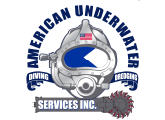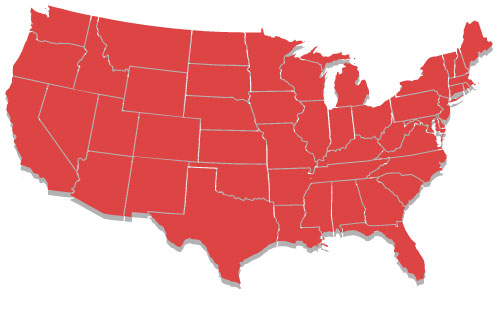When it comes time to hire a company to perform an underwater inspection or other job that requires the services of a diver, it’s important to perform your due diligence. After all, how will you ensure that the company you’re contracting with is responsible, capable, and will reduce risk exposure?
Underwater diving by its very nature is a dangerous job. Not only for the divers, but the equipment that they’re working on. One misstep by an inexperienced diver can have devastating legal and financial consequences that could haunt your company for years to come. This is why you should only hire a commercial diving company that has decades of experience and specializes in all aspects of underwater diving.
Lowest Bid is Not Always the Best Bid
If you’re a purchasing agent, project manager, or engineer and have been tasked with hiring a commercial diving company for a particular project, you should be wary of companies/individuals who promise more than they can deliver. On any given project, you’ll most likely get bids from local recreational divers who claim they can handle the job because their recreational YMCA dive card says so.
There is a huge difference between a recreational diver and a professional commercial diver. Recreational divers are only trained to go under water with a SCUBA apparatus. Commercial divers are trained in a formal setting and serve years of apprenticeship – much like a carpenter or electrician did before they become a journeyman.
Commercial divers are not only trained for specific jobs, they also undergo rigorous safety training and are well equipped to handle any emergency that might arise during the course of their dive. Such dive organizations as NAUI, PADI, and YMCA have all stated that their training cards are ONLY good for recreational diving.
If you hire a recreational diver and something goes wrong – death, dismemberment, drowning, or damage to property – your company could be legally held liable for the negligence of the contractor. This is why trying to save a few bucks by hiring a recreational diver is a risk that no company should take.
Rules & Regulations
If you’ve never hired a commercial diving company before, there are a few things you should take into consideration. For example, OSHA requires three people who are properly trained in commercial diving to be present at any given job site. These three people should consist of a:
- Diving supervisor
- Diver
- Tender (who tends to the safety of the diver when they are in the water)
These requirements by OSHA are the bare minimum. For some jobs, the commercial diving company may require more people to ensure safety and that the job gets done right. While your job specification may indicate that three people are required, contractors who bid are well within their rights to ask for more people based on their planning and assessment. It would behoove you to take their recommendations into consideration seriously – they’re the experts.
You should also require (and ensure) that the diving company has adequate insurance coverage – if someone is injured or property is damaged your company could be held legally liable. You should also ask for verifiable documentation that the insurance is valid and has enough financial coverage in case of an accident.
Due Diligence
Your diving contractor should have what’s known as a “diving plan.” It will detail how they intend to accomplish the underwater job. It will also detail how many people will be on the job site, the method(s) they will employ, the type of equipment they will use, and the way records will be provided once the job is completed.
In addition to including the basic details of the job, the dive plan might also include:
- Maximum dive time for each diver
- Names/job duties of each team member
- Contact info for the dive supervisor
- Anticipated underwater conditions
- Any other pertinent information
Bids
When the bids on your job start coming in, how do you determine what to pay? For starters, it’s a good idea to look at the actual range of the bids. If the lowest bid is $10,000 and all other bids are hovering around the $25,000 mark – something is seriously off with the $10,000 bid. That low of a bid could indicate the bidder does not fully understand the scope of the work. To that point – you should indicated in your job posting that you do not have any obligation to accept the lowest bid.
How can someone bid so low on a job where everyone else is at least double the lowest bid?
It is unfortunate, but fly-by-night divers do exist. They can bid so low because they don’t carry insurance, or the insurance they carry is not adequate. Perhaps their equipment is not up to proper safety standards or they have gotten a license revoked in the past. By accepting the lowest bidder, you’re putting your company at risk if anything goes wrong.
Putting it All Together
Hiring a commercial underwater dive company should not be taken lightly. By performing all due diligence and checking out the bidders before you announce the winning bid, you will have done all that you can in order to ensure the safety, security, and success of the job. At American Underwater Services, we have over 26 years of commercial diving experience. We’re licensed, insured, and bonded. We have over 30 employees and perform around 500 jobs per year. Even though we’re based on Fort-Worth, we can travel anywhere in America to help you safely and successfully complete the job. Contact us today for an estimate and let us show you why our clients are raving about our dive services!
[author_box]


